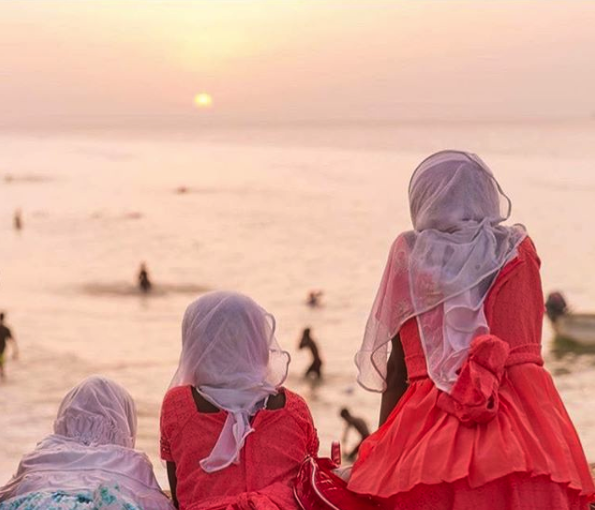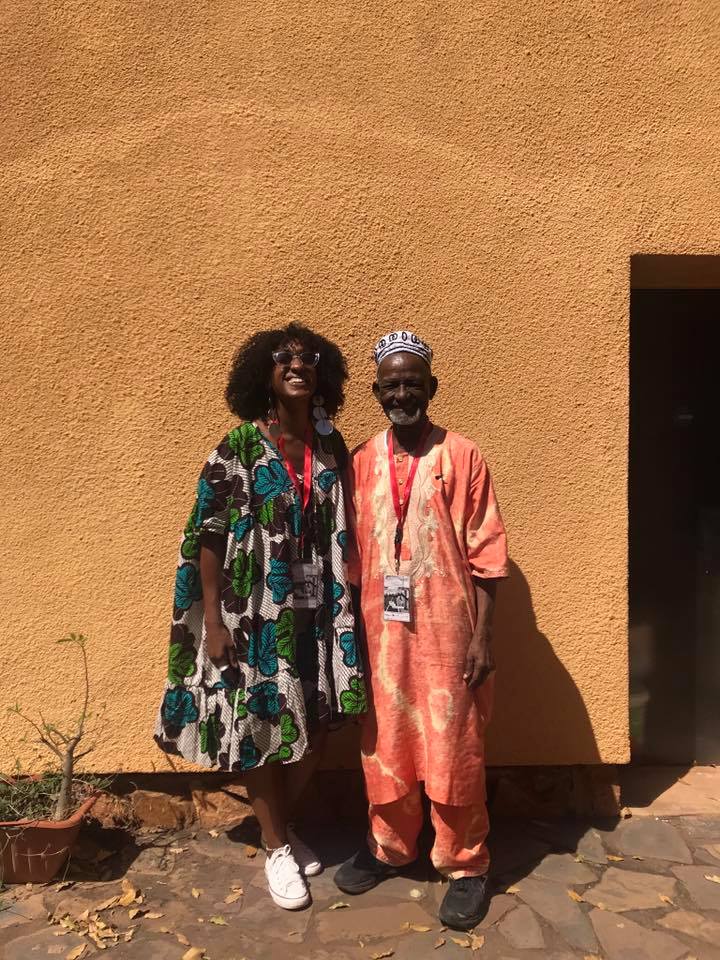Blog,Politics & Lifestyle
HOLAA Loves: Sarah Waiswa: A Good African Child, Creating for Yourself and the Juice
Posted By MremboSafi
On Apr 4, 2018
Sitting across the graceful, majestic-in-height and simply stunning award-winning photographer Sarah Waiswa is recharging the self. As an Afrifem conceptual editorialist, I always take every opportunity to stimulate creative highs. The aura Sarah bestows has that juice. Do you know about the juice?
Sarah Waiswa is a Ugandan-born Kenya-based documentary and portrait photographer with an interest in exploring identity on the African continent, particularly the New African Identity. After getting both her sociology and psychology degrees and working in a corporate position for a number of years, she decided to pursue photography. Sarah lives her purpose by creating visual poetry and telling stories in the most organic and creative way possible.
With an Insta page with the mirage of the ideal Afro-inspiration vision board, over 35,000 human beings know that Sarah has an eye for effervescent detail. In 2016, Sarah’s body of work “Stranger in Familiar Land” exhibited in the Rencontres d’Arles, Arles in France. “Stranger in Familiar Land” is a series that exemplifies the life of an albino who is pressured to front opposition emanating from both the solar system and society.
In this interview, Sarah expounds on the unremitting effort to be a good African child. She also shares why knowing the self is key to creating sustainable work that keeps the artist relieved (if not happy). Oh! And the Juice.
Wacera: There is a phrase you use to identify your work ‘The New African Identity’. Is it intentional?
Sarah: When I started using The New African Identity, it was a way to express what I was seeing in terms of how young people were expressing themselves, particularly in Kenya and on the continent. Growing up, the opportunities available to sustain creative expression weren’t as accessible as they are now. When I see young Africans, they seem comparatively free. It is much more accepted for people to be themselves.
There is an open agency to express yourself authentically and to express your Africanness. It wasn’t the case back in my day. I feel like we were trying to be as Eurocentric as we were socialized. The fashion, the hairdressing, the cultural vocabulary. The less African you acted, the better it seemed. I think the Afro-youth culture has evolved in terms of incorporating that African identity and socio-cultural experience. We are now embracing being African and it’s cool now.
Wacera: You mentioned the freeness in Afro-youth culture. Do you think that there is a responsibility that comes with this freedom?
Sarah: I guess that’s on an individual basis, right? Who’s to say? I think people now are claiming who they are. Whether it’s their sexual orientation, life’s goals… It just wasn’t possible back in the day to be like this. This is a special opportunity. Everything had a stigma.
You just had to be a good African child. It’s still a thing. Here’s a true story: One of my friends is a music producer and we assume he is very free. Curiously, I had a conversation with him the other day and he was like “I am in the university and I’m studying business’’. Who would have guessed?
Artists can go to school and study new theories, but I thought that he would be studying an art-centric curriculum. I asked him why he did not study music at school. I mean, isn’t this the time of liberation? My friend said: “No, my mom insists that I study Economics.’’ Sure he may have shown interest in economic politics, but the fact was that he still had to fulfill these expectations from his mother. I assumed that the experience of being free doesn’t mean that there aren’t sociocultural expectations.
As an African child, you are still expected to have certain things to be okay or to be accepted. I think that misconception is still alive and affecting lives. We live in a culture with moving parts. We sustain expectations. However, we can be a little bit more lenient. With this in mind, I wonder how sad it would be if I were just to die when I never did what I wanted to do.
“…how sad would it be if I were just to die when I never did what I wanted to do.”
Wacera: A common struggle artists have globally, is when and where do we share the work. Is it ever ready? How do you standardize and leverage your creative service? Is there a quality we should uphold? Are there rules? How can we still maintain a sustainability of sharing ?
Sarah: I don’t think there are any rules to anything. Social media has just made it possible to share and to connect with people. Who is to say what is good or bad? Who is the judge of what you should and shouldn’t share? I think the key thing is you create for yourself.
If you are creating for an audience, then obviously you have to start thinking about actively appeasing them. If you are creating for yourself and with a concise purpose, people might see your work and like it. That is well and good. If they don’t like the work, then good as well, right?
At the end of the day, the purpose doesn’t change. You must be true to yourself. Continue creating what you want to create. Share it when you want to share it. The rest will eventually be history.
Creating with the purpose of garnering a particular type of attention or a particular sort of response may lead to disappointment. You want people to like your work. If you want to be up there, you must figure out how to sustain that hype. What happens when you run out of that ‘people-pleasing’ juice? If you are creating for yourself with your purpose in mind, then it doesn’t really matter who or what the audience is saying. You always have the juice.
To enjoy Sarah Waiswa’s outstanding artwork, check out her social media:



